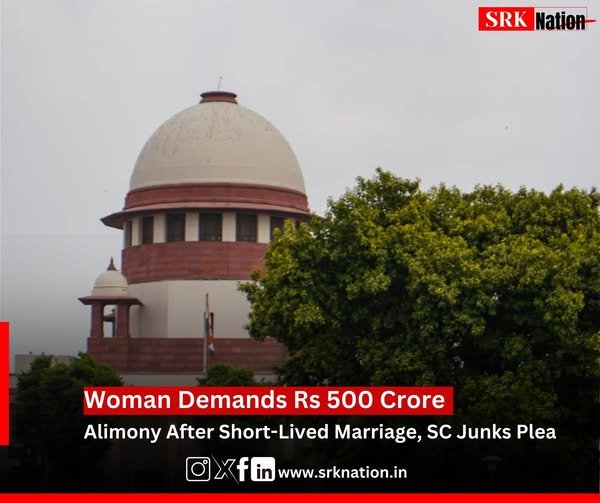The Supreme Court has ruled that alimony should not be considered a means of equalising property between husband and wife. The top court gave this ruling in a recent case which involved a couple’s divorce after a short-lived marriage.
An Indian-American citizen, operating a successful IT consultancy in America, married a woman from India on 31 July 2021. This was his second marriage, following a divorce from his first wife, to whom he had paid an alimony of Rs 500 crore. His second marriage also ended in divorce after a mere few months of cohabitation. Subsequently, the second wife demanded alimony equivalent to the sum received by the first wife.
The husband appealed to the Supreme Court under Article 142 of the Constitution, seeking annulment of the marriage. However, the Supreme Court has ordered him to pay Rs 12 crore to his second wife, who had contested his appeal, demanding permanent alimony equal to that received by the first wife.
According to a report in the Times of India, a bench of Justice B.V. Nagarathna and Justice Pankaj Mittal expressed displeasure over a demand for equal alimony for a second wife. They stated that the second wife, who spent only a short time with the husband, cannot demand equal alimony compared to the first wife.
In a detailed 73-page judgement, Justice Nagarathna wrote, “We have serious objections to the trend that alimony is considered a means of equalising property between husband and wife. Often, women mention the property, status and income of their husband in their application and then demand an amount which is equal to their property.”
The bench stated that the law of alimony aims to protect the wife from poverty, preserve her dignity, and ensure social justice. It emphasised that the law entitles a wife to maintain the same standard of living she experienced in her marital home.
However, the bench clarified that this doesn’t obligate the husband to perpetually maintain his former wife at her current standard of living after separation. If the husband’s financial status has improved post-separation, it would be unjust to burden him with maintaining his former wife at a level commensurate with his current means.
The bench raised the question of whether a wife should be entitled to an equal division of property if the husband experiences financial hardship after separation. It highlighted the lack of a clear formula for determining alimony and asserted that a second wife does not have the right to demand the same level of financial support as the first wife, particularly if the husband’s income has decreased.
In the petition, the second wife stated that the first wife received a house in Virginia, USA, in addition to a permanent alimony of Rs 500 crore. The husband proposed a permanent amount of Rs 20 to 40 lakh to the second wife, explaining that he spent very little time with her and faced numerous legal cases filed against him within a short period.
The Supreme Court ordered the husband to pay Rs 10 crore as permanent alimony, along with an additional Rs 2 crore for vacating two flats belonging to the woman’s father-in-law in Pune and Bhopal. Furthermore, the husband is liable to pay Rs 30 lakh for litigation expenses.

See insights
Boost a post
Like
Comment
Send
Share






